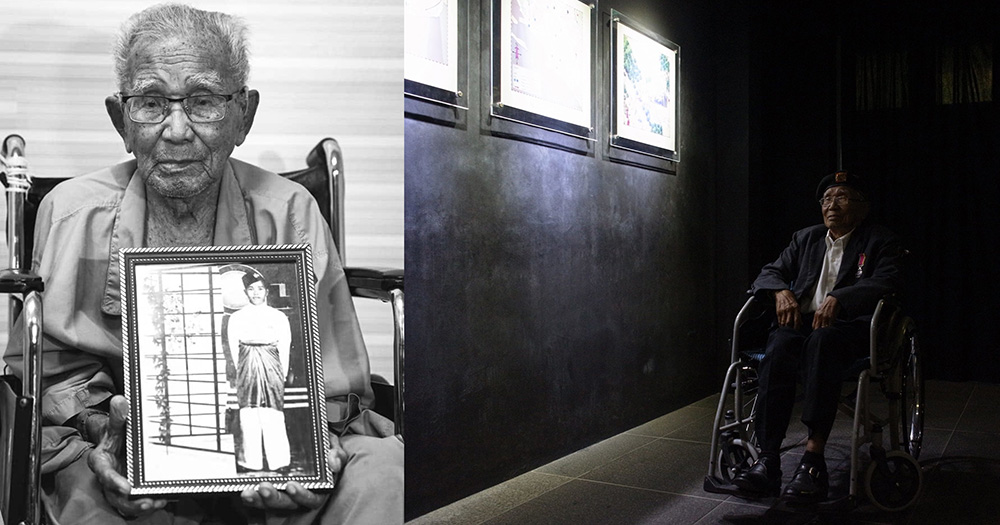The last survivor of the Battle of Pasir Panjang in the Second World War (WW2) has died of Covid-19, Malaysian media Bernama reported.
Family could not visit him because of Covid-19 situation
On Tuesday, Feb. 9, Ujang Mormin passed away at the age of 100 at the Sungei Buloh hospital in Selangor, nearly 79 years after he fought in the battle on Feb. 14 in 1942.
He had been admitted to hospital after testing positive for the virus on Jan. 26, 2021.
His condition subsequently became critical four days prior to his death.
Ujang's granddaughter, Lailawati Jamil, added that the family had been unable to visit as a result of the Covid-19 situation.
She said, "He had, prior to this, expressed his longing to meet relatives and friends, as if he knew the time had come, but due to the current Covid-19 situation, we could not visit him."
Was 21 years old at the time of the battle
Bernama further reported that Ujang had been 21 years old at the time of the battle, and was one of the few people to have survived it.
At that time, he was a private within the First Battalion of the Royal Malay Regiment (1 RAMD) in the British Army, which he joined in 1939.
According to his own retelling of the battle to Malaysian media, Ujang said that he had crawled through trenches and jumped into dugouts during the fight.
However, he eventually retreated to the jungle with some of his comrades as a result of low food and water supplies, and after learning the news of the death of Lieutenant Adnan bin Saidi.
Adnan's regiment was annihilated after putting up a fierce resistance in the fight against the Japanese, with Adnan himself and the remaining troops refusing to surrender at the end of the battle.
Took two months to return home to Malaya
In the aftermath of the battle, Ujang added that the English officer said that they were either free to go off on their own separate ways or surrender to the Japanese.
Ujang decided to make his way back home to Rembau, located in present-day Negri Sembilan, and changed to civilian clothes along with seven others to avoid becoming targets for the Japanese.
The journey took two months, with Ujang finding shelter with other Malay families along the way.
Still remembered the moment of reunion
He added that upon his return:
"I was so surprised to see many relatives and friends coming to greet me home, it was like a party, as I saw my parents' faces I immediately hugged them and just cried, it is something I will always remember."
Afterwards, he married a girl from his village and returned to duty at the British Military Headquarters in Port Dickson at the end of the war in 1945.
Upon the end of his service in 1947, Ujang served as a prison warden until retirement.
He eventually came to reside at the Tuanku Mizan Military Hospital after becoming too frail to drive at the age of 95.
Top image collage left image from Tia Dalma Facebook, right image from I love Museums Facebook
If you like what you read, follow us on Facebook, Instagram, Twitter and Telegram to get the latest updates.
